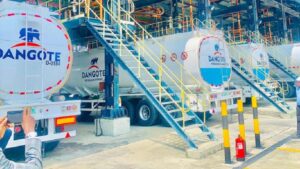China Begins Oral Covid-19 Vaccine Handout
For those afraid of needles, the coronavirus pandemic has been a difficult time, with two initial shots and then follow-up boosters. But the Chinese city of Shanghai has solved that issue with a new inhalable Covid-19 vaccine.
The vaccine, delivered in a mist, is currently being offered free of charge as a booster dose for previously vaccinated people, according to an announcement on an official city social media account.
A video posted by an online Chinese state media outlet showed people at a community health centre placing a translucent white cup on to their mouths. The accompanying text said that, after slowly inhaling, people hold their breath for five seconds, with the entire procedure completed in 20 seconds.
“It was like drinking a cup of milk tea,” one Shanghai resident said in the video. “When I breathed it in, it tasted a bit sweet.”
The Covid vaccine developed by Chinese biopharmaceutical company CanSino is seen in Shanghai. AP
The Covid vaccine developed by Chinese biopharmaceutical company CanSino is seen in Shanghai. AP
But it is not only the squeamish who will benefit from the new delivery method: scientists hope that such “needle-free” vaccines will make vaccination more accessible in countries with fragile health systems because they are easier to administer.
China wants more people to get booster shots before it relaxes strict pandemic restrictions that are holding back the economy and are increasingly out of synch with the rest of the world. As of mid-October, 90 per cent of Chinese were fully vaccinated and 57 per cent had received a booster shot.
The effectiveness of non-needle vaccines has not been fully explored. Chinese regulators approved the new inhalable in September, but only as a booster shot after studies suggested it triggered an immune response in people who had previously received two shots of a different vaccine.
A vaccine taken orally could fend off the virus before it reaches the rest of the respiratory system, though that would depend in part on the size of the droplets, one expert said.
Larger droplets would train defences in parts of the mouth and throat, while smaller ones would travel further into the body, Indian immunologist Dr Vineeta Bal told The Associated Press.
The inhalable vaccine was developed by Chinese biopharmaceutical company CanSino Biologics as an aerosol version of the company’s one-shot adenovirus vaccine, which uses a relatively harmless cold virus.
The traditional one-shot vaccine has been approved for use in more than 10 markets including China, Hungary, Pakistan, Malaysia, Argentina and Mexico. The inhaled version has received a go-ahead for clinical trials in Malaysia, a Malaysian media report said last month.
Regulators in India have approved a nasal vaccine, another needle-free approach, but it has yet to be rolled out. The vaccine, developed in the US and licensed to Indian vaccine maker Bharat Biotech, is squirted in the nose.
About a dozen nasal vaccines are being tested globally, the World Health Organisation said.















Post Comment